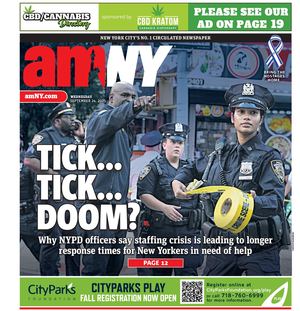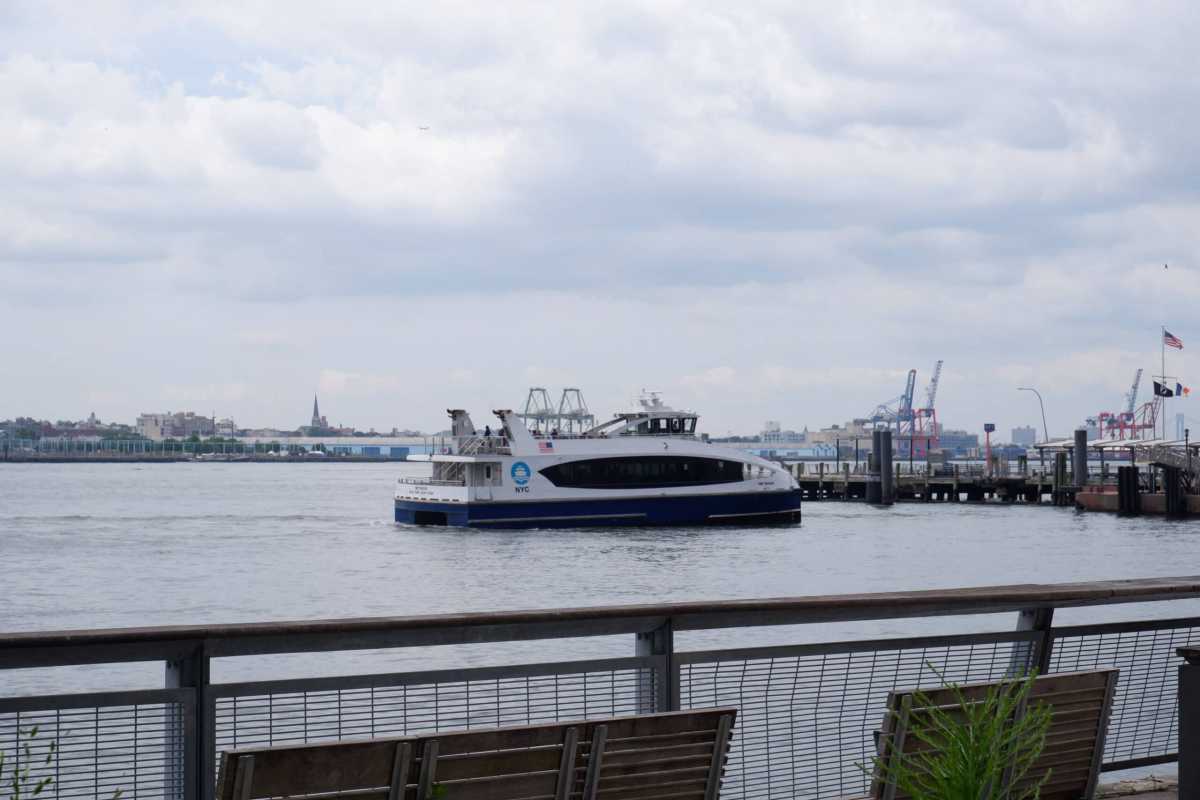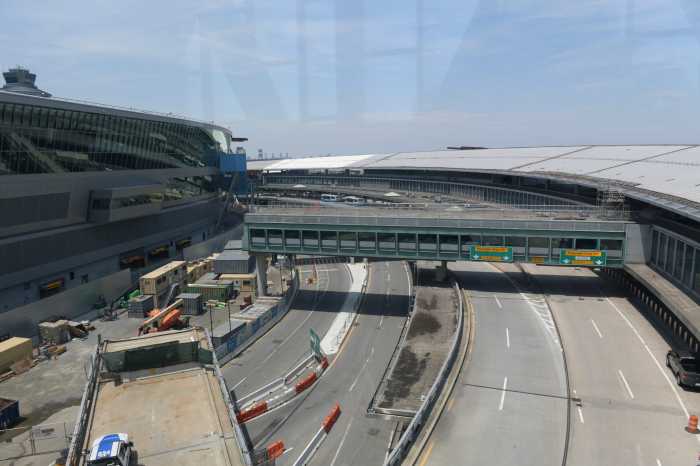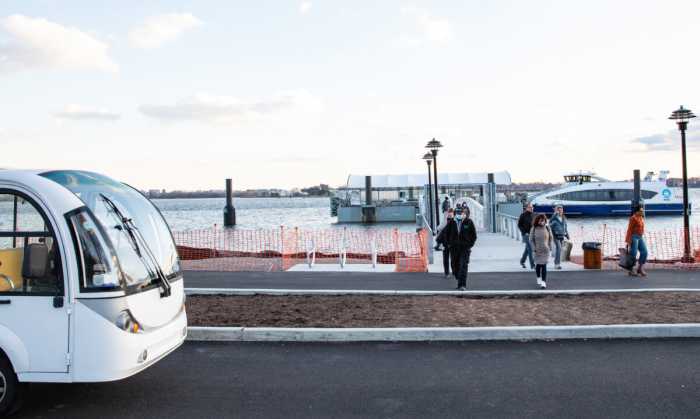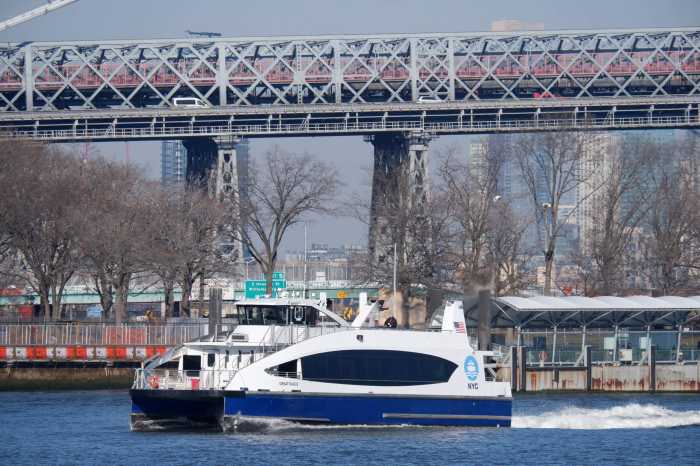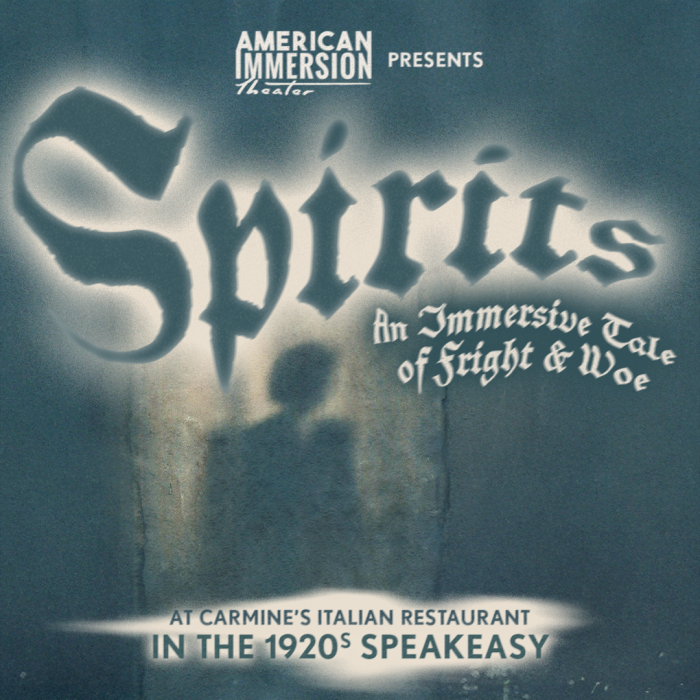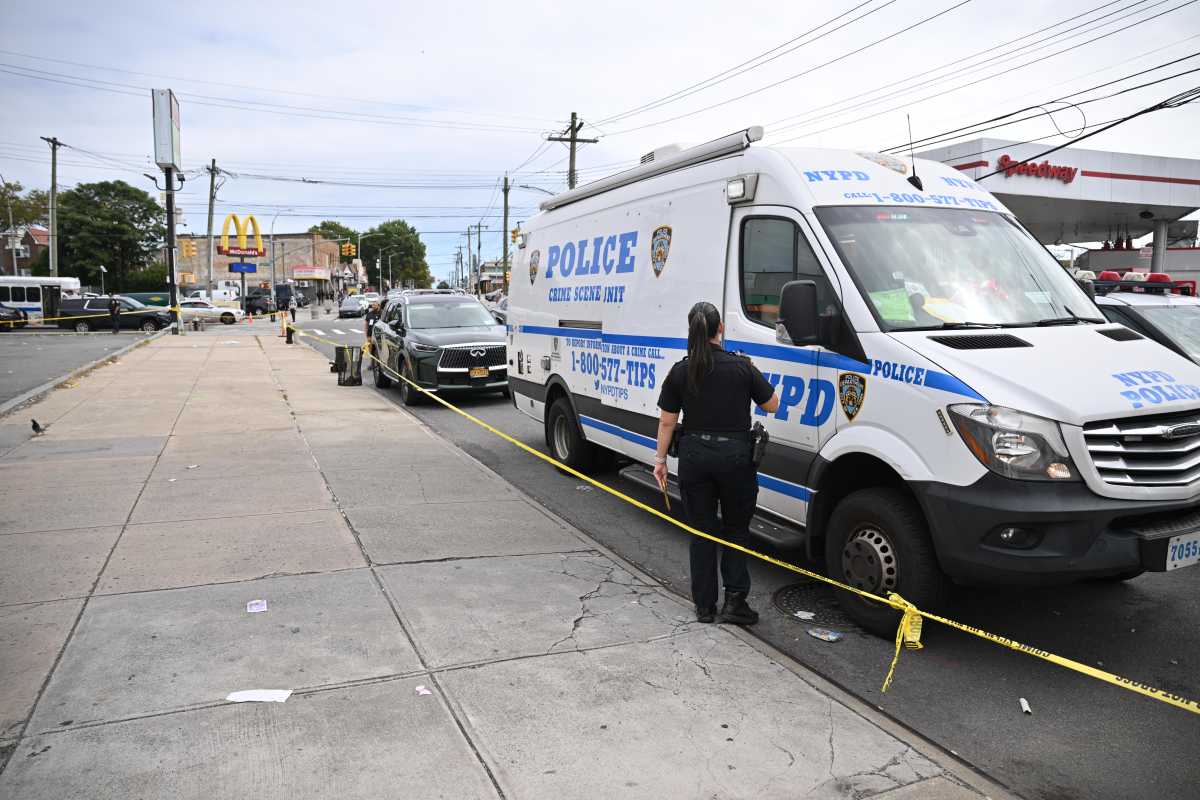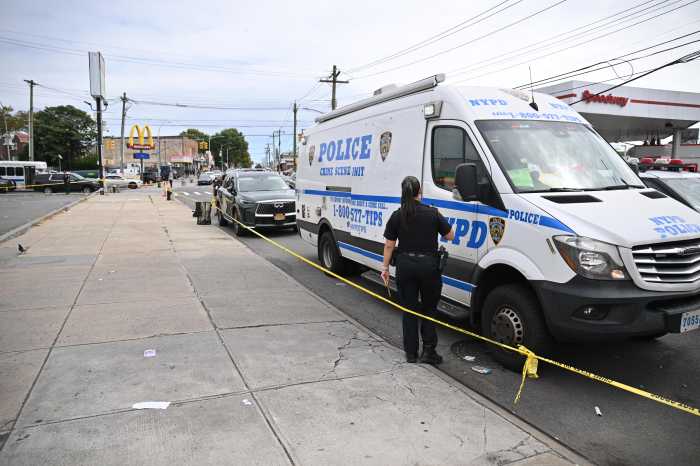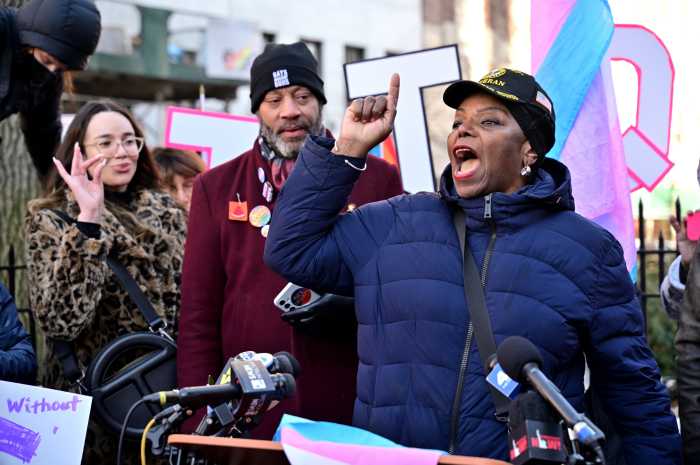The city underreported the cost to run its pricey NYC Ferry system by nearly a quarter-billion dollars, according to a newly-released audit by Comptroller Brad Lander.
The quasi-public nonprofit Economic Development Corporation, which oversees the ferry, lowballed the cost of the waterborne transit service by $224.4 million over six years during the former Mayor Bill de Blasio administration, the lengthy review found.
After citing Walt Whitman’s famous poem “Crossing Brooklyn Ferry,” Lander told reporters Wednesday that his office also uncovered mismanagement and poor oversight of the maritime scheme, which is operated by the private contractor Hornblower.
“While Walt Whitman’s job was to wax poetic, the New York City Economic Development Corporation’s responsibility is to provide adequate oversight and report financial information transparently on the New York City Ferry system,” said Lander during a press conference at Pier 11 on the Lower Manhattan waterfront.
The underestimation means that the public subsidy for the ferry’s $2.75 ticket price has also been higher than the city previously reported, according to the 50-page document released by the city’s chief bean counter on July 6.
The city subsidized $12.88 per ride, nearly 50% higher than EDC’s claim of $8.59 in Fiscal Year 2021, according to the latest data. That’s almost double the $6.60 subsidy de Blasio projected when he debuted the service five years ago.
Hidden costs
The audit, which began under Lander’s predecessor Scott Stringer, found that EDC incurred $758.5 million in ferry-related costs between 2015 and the end of 2021, well above the $534 million reported by EDC.
The missing additional dough included payments to other vendors and the previous operator Billybey, along with staffing and maintenance costs.
The largest chunk of unaccounted costs was for depreciation of the city’s ferry assets, such as the boats which EDC bought for millions of dollars from Hornblower.
De Blasio launched the current ferry system in 2017 and insisted on keeping the fare the same price as a trip on the subways or buses, which are controlled by the state’s separate Metropolitan Transportation Authority.
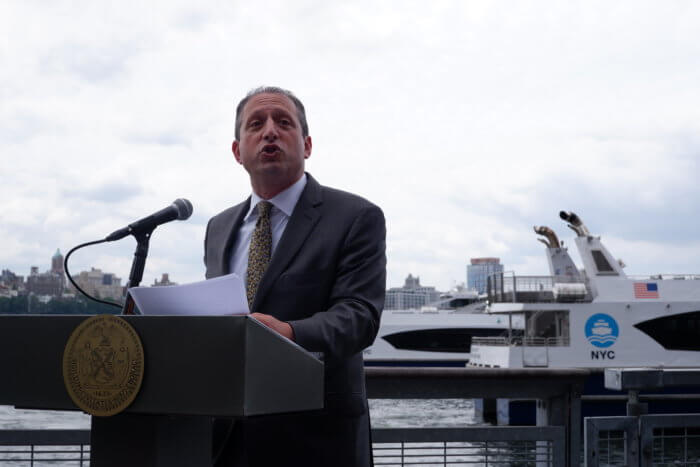
The city stopped including capital costs in their calculations for the subsidy per ride shortly after de Blasio made a massive $300 million investment in the ferries, according to Lander.
“They did from 2002-2017 and they stopped at the moment when the mayor announced a big capital expenditure in the system,” said the city’s top accountant.
He suggested that the former mayor pushed officials to hide the full cost of the ferries.
“It’s reasonable to guess that there was essentially pressure on EDC to put forward information that showed a lower subsidy per ride in a way that would be more consistent with the goals that the mayor had laid out for the system,” he said.
In a response to the audit, EDC agreed to disclose more of its costs on its website annually, but disagreed about including capital depreciation, saying it was not required by federal standards or of other ferry operators, like the city’s Department of Transportation, which runs the fare-free Staten Island Ferry.
“NYC EDC has consistently sought to ensure careful stewardship of public funds and has demonstrated a strong commitment to getting the best deal for the city,” wrote the agency’s Chief Financial Officer Fred D’Ascoli in a letter responding to the audit.
“While we welcome many of the ideas and recommendations for improvement, we disagree with others,” D’Ascoli continued. “We believe that relevant data was misrepresented, key facts were misconstrued, or NYC EDC’s contractual agreement with the operator of the NYC Ferry was misunderstood.”
‘Questionable’ spending
The comptroller’s office also found $66 million in unnecessary expenses, $12 million in overpayments to Hornblower, and $34 million in “questionable” spending on the vessels.
In one case, EDC ordered and paid for an $8.4 million “Rockaway Class” boat, but Hornblower instead delivered a “River Class” vessel, which costs $5.6 million. The agency never got a refund for the $2.8 million difference, according to Lander’s office.
De Blasio also terminated the city’s contract early with Billybey, which used to run a previous iteration of ferries on the East River, and the premature cancellation cost the Big Apple $21 million.
EDC plans to launch a public bidding process for the next operator contract this summer, known as a “request for proposal.”
Hornblower or another company will be able to put forth their proposal for how to keep running the watercraft after the current agreement expires at the end of September 2023.
Lander said the city should consider implementing “dynamic pricing” for tickets as part of the RFP.
The city could charge more for sightseers or leisure riders while offering discounts to lower income commuters, such as the Fair Fares program that gives half-price MetroCards to New Yorkers living at or below the federal poverty line.
“I feel more comfortable subsidizing the transit of a daily commuter from the Rockaways, works in Manhattan, than I do subsidizing to the same level a tourist or somebody who’s going out to the beach on a weekend,” said Lander.
Bumpy ride
The ferry system has repeatedly faced financial scrutiny and criticism since de Blasio debuted it in 2017 for serving largely white and wealthy riders while churning through millions in taxpayer dollars.
The network’s piers have also suffered routine breakdowns in part due to faulty mechanical docks that go on the fritz daily, amNewYork Metro previously reported.
A spokesperson for Mayor Eric Adams’s office blamed the de Blasio administration and said that City Hall will work on a more fiscally sound system.
“Concerns around the system’s finances are well known – the prior administration rushed NYC EDC to establish a large and complex ferry system, and we are keenly aware there is room for improvement,” said Charles Lutvak in a statement. “We are working actively on an innovative plan to write a new chapter for the ferry system centered on true financial sustainability and access for communities that need it.”
De Blasio, who is now running for Congress, released the following statement Wednesday afternoon:
“We haven’t had a chance to review the full report and recommendations, so I can’t comment on any specifics yet, but if there are issues with underreporting at EDC, or by the ferry operators, that should be remedied and whatever accountability or reforms that are needed should be adopted,” the former mayor’s statement read. “The ferry system’s continuation and growth is vital for New York City. We need more affordable, accessible transit options connecting the five boroughs now more than ever.”
An unnamed statement by Hornblower said the company did not violate its agreements with the city.
“The comptroller’s report does not state that Hornblower has violated its contract with the city in any way. We have continually worked to deliver quality transit options at affordable fares while expanding the ferry system to include more neighborhoods so that taxpayers get the most out of their investment in the city’s transportation system,” read the statement.
